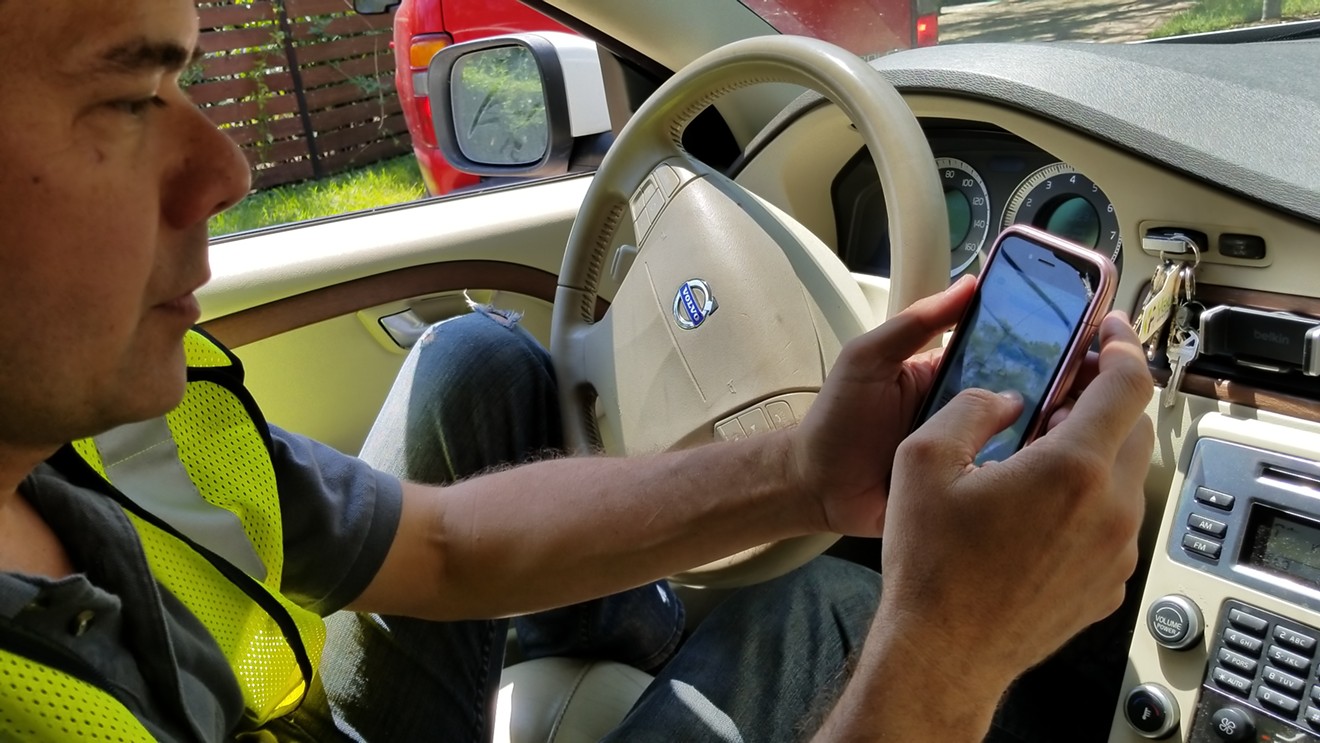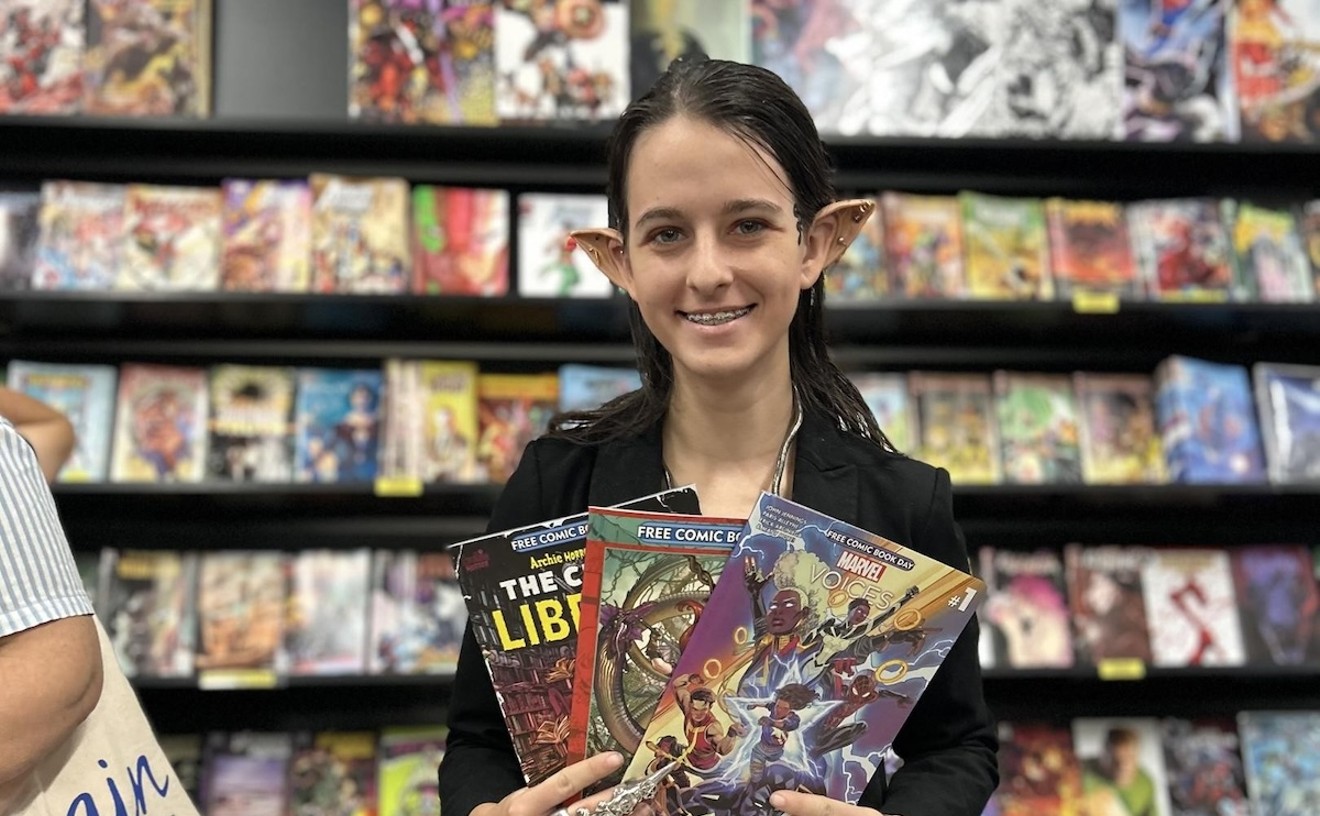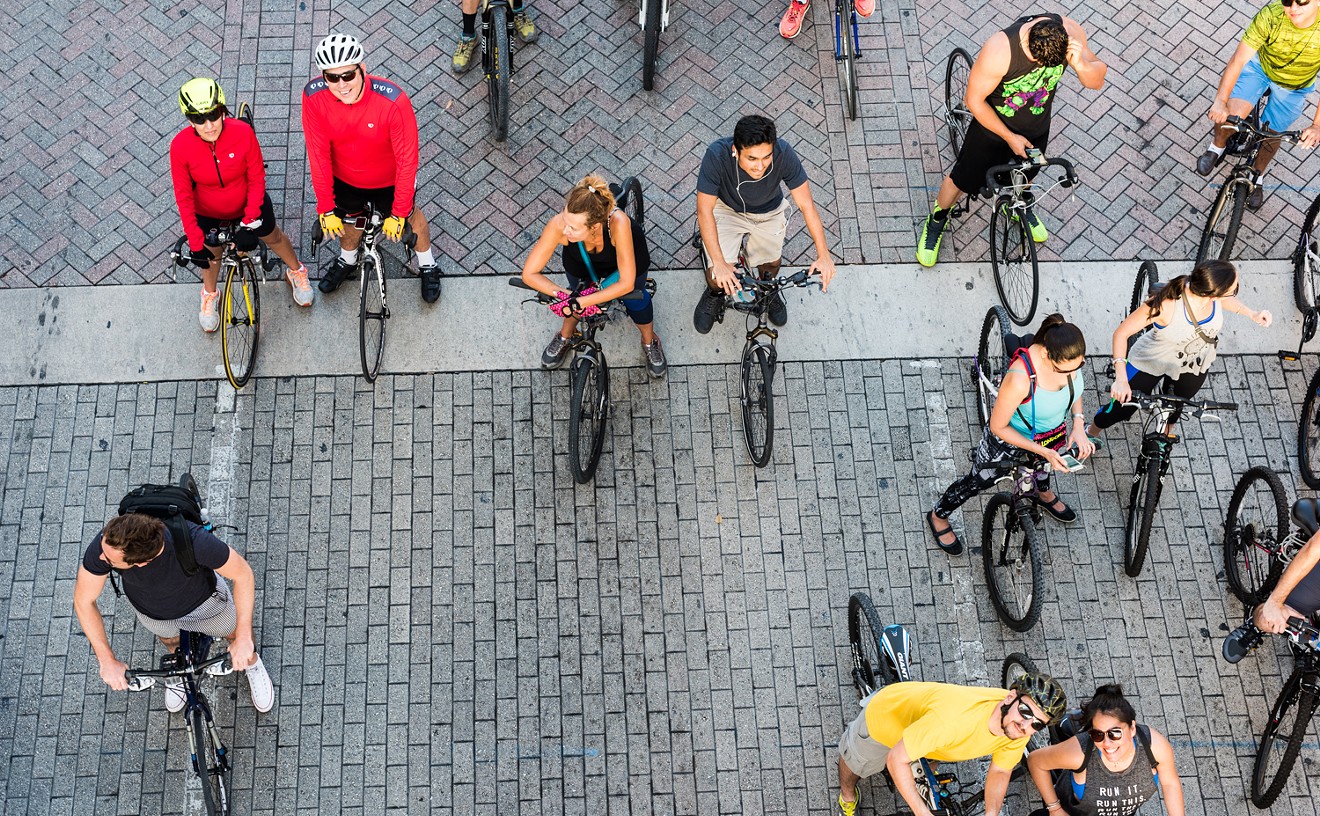The storm's aftermath revealed that Miami’s laws and infrastructure haven't kept up with population growth and new construction. Irma shored up the city's weakest points like so much flotsam, causing a slew of tragic events, the most barbaric being the death from heatstroke of eight elderly patients in a nursing home that wasn’t obligated by law to own and operate generators. Despite attempts at the polls, campaign promises, and customers paying to strengthen South Florida’s post-storm resiliency, power lines still dangle above homes instead of being buried underground, trees are still planted near power lines and aren’t trimmed properly, and laws crafted by FPL itself prevent residents from taking advantage of solar power and disconnecting from the grid. South Miami-Dade residents have filed a class-action suit against FPL, while other residents in the county have reported that FPL has perplexingly closed complaint tickets even when power hasn't been restored.
But some folks in Coconut Grove are bringing power back to the people by taking full advantage of social technology that wasn’t available 25 years ago. It's a small step, spearheaded by City of Miami Commissioner Ken Russell, that has helped FPL do its hurricane-recovery work in a big way. In the mess of fallen trees, Russell saw an opportunity to create a civic map by using a cell phone, the website and app Nextdoor, and good old-fashioned neighborhood reconnoitering.
“I went to Nextdoor on Saturday and gave a call to action," Russell says. "Look at your street. Is there a downed line or a tangled line?”
It all happened pretty quickly. By the end of the day, he had received 100 responses from Grove residents who reported downed, dangling, or tangled lines. Russell created a spreadsheet and map with addresses, which he forwarded to FPL. Coconut Grove went from 6,000 outages this past Saturday to 3,000 Sunday.
Russell admits his role as commissioner gave him easier access to FPL’s government liaison. But his call to action also opened the doors for citizen activism that made a big difference. Knowing the location of the bottlenecks helped FPL clear the trees, the first step in de-energizing and detangling lines, which paved the way to repair and reset connections. Russell adds that FPL has a problem recognizing where the downed lines are located. The company's usual process, which begins with a list of outage complaint tickets, still doesn’t help the right crew get to the right place with the right tools, he says.each green pin is a downed line or tree entanglement that has been solved today. Yesterday grove outages near 6000. Today down to near 3000 pic.twitter.com/DXup7Nq7ZY
— Ken Russell Miami (@kenrussellmiami) September 18, 2017
This past Sunday, Russell followed crews to ten homes. Red points on the map turned green when each mission had been accomplished. “Green means the crew came in and untangled that line so that the next step could happen. I really saw a big difference in terms of crews moving around and honing in on problem areas.”
“I can’t quantify it all just yet. There were many more outages before Saturday. But the residents’ involvement was a big help in expediting the process and making it more efficient," Russell notes.
“There’s anger in my community toward FPL. It’s palpable and understandable. It’d be easy for me to point a finger,” he says. “But in the meantime, we need to help them get us connected. We have new technology now that we didn’t have before that empowers people to get involved.”
Russell believes a return to normalcy depends upon communication — another problem FPL needs to correct. Although he began civic mapping as a pilot for zip code 33133, many others lines need repairing across Miami-Dade.
“Normally, we rely on the utility company to solve the issue for us. Then we get angry,” he adds. “And there’s a whole new world of communication out there right now, yet people are frustrated because they’re not just literally in the dark but also cut off from communication. Deadlines get moved. FPL needs to find different ways to communicate instead of waiting for people to write in and beg for status updates.”
Crowdsourcing through social tech, in this case, was the answer to help utility crews find binding points, which helped them, in turn, unravel knots that freed the whole system. “I called them the ninja crew,” Russell says. “They were quick and stealthy, following the list that was generated by the public."

Commissioner Ken Russell surveyed damage and talked to neighbors after Hurricane Irma.
Courtesy of Commissioner Ken Russell
“Commissioner Russell’s approach both speaks to his leadership on civic tech issues and demonstrates what’s possible with some initiative, ingenuity, and free, easy-to-use technology,” Sarasti says. “We have a ways to go, but Irma has shown that civic tech is a developing strength when it comes to Miami’s resilience.”












